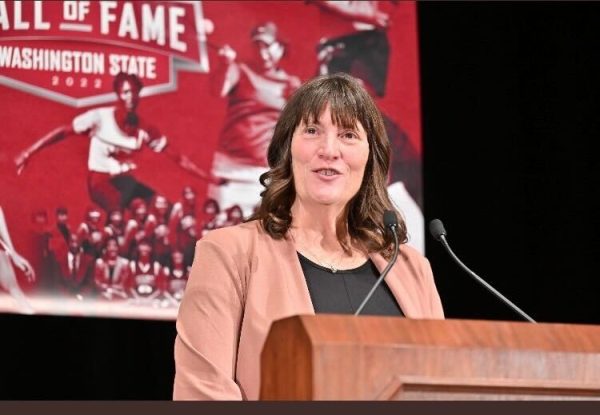Forum addresses obstacles for Women’s Transit
February 13, 2017
A Women’s Transit program leader said at an open forum Friday that a smaller pool of volunteers, as well as risks involved in dealing with uncooperative, belligerent and intoxicated people, were among the problems the transportation service faced last semester.
Women’s Transit closed in October and began a review of the program, going over policies and procedures with the aim of ensuring the safety or drivers and riders.
Jarrick Wick explained that typically 150-200 volunteers worked for the program during past semesters. The most recent pool was “particularly low,” although Women’s Transit switched from a paper to online application, he said.
Women’s Transit volunteers said they sometimes have to handle difficult and potentially dangerous people. It is difficult to verify the identification of potential riders, Wick said, and in the past, riders who have proven themselves a threat to volunteer drivers have had their phone numbers banned from the service.
“We spend quite a bit of money on (volunteer) background checks,” said Women’s Transit Coordinator Sarah Smith. “Some volunteers quit after only five or six hours because they needed those required service hours.”
In addition to the money put toward short-term volunteers, trainings for most volunteers, led by Wick, involve about an hour and a half of group training and another half hour for volunteer drivers.
Wick has been with Women’s Transit for about three years, and he said that during this time, aside from the three different resource directors and two different commercial locations, policies and operations had remained the same.
Sydney Johnson, a sophomore political science major, said she was concerned with some people’s desires to rebrand the service.
“It is already stated on its website that despite the name, it is committed to helping students of all genders stay safe on campus,” she said. “I personally feel that rebranding it is like saying sexual violence is not an issue. Students should be able to have resources available to help end sexual violence from happening on campus.”
Smith said one of her goals is to have Women’s Transit up and running during the first few weeks of school, when there are lots of parties going on.
While some passengers were comfortable with being in the car with other riders, some preferred to ride alone, which Smith said prompted her to consider multiple tiers of service, ranging from multiple to single rider options.
“Most of the schools I looked at used something larger than our vehicle, at least an SUV or van holding up to six passengers,” Wick said. “When our drivers have ride-alongs there are at most three passengers.”
Transportation Services assistant director Chris Boyan was present at the forum to provide other meeting attendees with informational resources about alternative modes of transportation, such as Pullman Transit. Others include Zipcar, Zimride, College Cabs and Uber, he said.
Smith recalled some survey responses collected so far; For example, there were people who were intoxicated and were trying to get home, but felt unsafe, or couldn’t find their way back, she said.
“I think we’ve gotten a pretty good variety of responses,” Smith said. “Some are related to violence, some are people not wanting to walk through Greek Row.”
Women’s Transit is currently collecting student survey responses online at womenstransit.wsu.edu/. Student fees help fund Women’s Transit, so student input is valuable in the reassessment process, Smith said. She said she wants to hear about student perception of the program’s services, any anecdotes students have and thoughts on the purpose of the services. Smith said it is possible Women’s Transit may switch to a general safety service.
As of now, there is no scheduled times at which Women’s Transit will resume, Wick said, as the service is being thoroughly assessed for the first time in several decades.
“We provide a free service to those who can’t afford it, or don’t have a car or find themselves in unsafe situations,” Smith said. “Our mission is to address sexual assault. The way we’ve marketed ourselves is as, ‘Hey, if you need a safe ride home, the next bus isn’t for 45 minutes, you can call Women’s Transit.’ ”
While in service, Women’s Transit operated 8 – 12 a.m. on weeknights and 8 – 2 a.m. on weekends.
Johnson said she hopes to see Women’s Transit up and running again next semester with extended hours, and to see more students attend the next forum.
“It is important that students’ voices are heard,” she said, “but they can’t be if they are not showing up.”



















